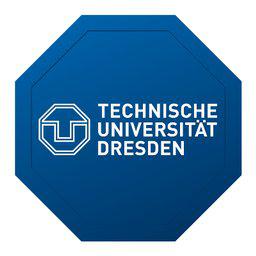Dezernentin bzw. Dezernent (m/w/d) - Dezernat Studium und Weiterbildung Dresden Praktikum Technische Universität Dresden Dezernentin bzw. Dezernent (m/w/d) - Dezernat Studium und Weiterbildung Dresden Praktikum Freistaat Sachsen Wissenschaftliche/r Mitarbeiter/in (Doktorand/in; m/w/d) Dresden Vollzeit Technischen Universität Dresden
🎯 6 Research Associates / PhD Students (m/f/x) bei Technische Universität Dresden – Jetzt bewerben und Karriere starten

Technische Universität Dresden
Dresden
Stellenausschreibung
TUD Dresden University of Technology, as a University of Excellence, is one of the leading and most
dynamic research institutions in the country. Founded in 1828, today it is a globally oriented,
regionally anchored top university as it focuses on the grand challenges of the 21st century. lt
develops innovative solutions for the world's most pressing issues. In research and academic
programs, the university unites the natural and engineering sciences with the humanities, social
sciences and medicine. This wide range of disciplines is a special feature, facilitating interdisciplinarity
and transfer of science to society. As a modern employer, it offers attractive working conditions to all
employees in teaching, research, technology and administration. The goal is to promote and develop
their individual abilities while empowering everyone to reach their full potential. TUD embodies a
university culture that is characterized by cosmopolitanism, mutual appreciation, thriving innovation
and active participation. For TUD diversity is an essential feature and a quality criterion of an excellent
university. Accordingly, we welcome all applicants who would like to commit themselves, their
achievements and productivity to the success of the whole institution.
The School of Embedded Composite AI (SECAI), a DAAD Konrad Zuse School of Excellence in
Artificial Intelligence in cooperation with Leipzig University offers six positions as
Research Associate / PhD Student (m/f/x)
(subject to personal qualification employees are remunerated according to salary group E 13 TV-L)
starting September 1, 2024. The positions are limited to 3 years. The period of employment is
governed by the Fixed Term Research Contracts Act (Wissenschaftszeitvertragsgesetz - WissZeitVG).
The positions aim at obtaining further academic qualification (usually PhD). Balancing family and
career is an important issue. The positions are generally suitable for candidates seeking part-time
employment. Please indicate the request in your application.
Topics and Work Location: Researchers of several disciplines are collaborating in SECAI on advancing
AI. The spectrum of available topics ranges from core areas of computer science and electronics over
medical applications to societal aspects of AI. SECAI’s main research focus areas are:
- Composite AI: How can machine learning and symbolic AI methods be combined?
- AI Compute Paradigms: How will future AI hardware look and how will it be used?
- Intelligent Medical Devices: How can AI advance cybermedical systems?
- AI Methods for Health: How can AI methods support therapy and diagnostics?
- Societal Framework of AI: How can AI become trustworthy and free of legal risks?
The location of work (Dresden or Leipzig) depends on the topic assigned for each position. Information
about the available topics and supervisors can be found at https://sec... [Vollständig anzeigen] .
Tasks: As a member of the SECAI graduate school, you are answering challenging research questions
under the supervision of leading researchers and together with other teams members from Dresden
and Leipzig. You develop your own research profile, publish and present your findings are
international venues, and network with the international research community.
Requirements: very good research-oriented university degree in a discipline that is relevant to
SECAI’s research fields (e.g., computer science, mathematics, electronics, medical devices,
bioinformatics, or law); fluency in English. Creativity, taking pleasure in research, and a sense for
research quality and ethical behavior in research are an advantage. Please specify for which of the
topics found at https://sec... [Vollständig anzeigen] you would like to apply.
Opportunities: SECAI offers a first-class environment for advancing your career. You can work with
internationally renowned researchers and benefit from the school’s strong networks in industry and
research. The graduation of highly qualified researchers is a central project goal in SECAI and doctoral
students receive strong support for their professional and personal development.
TUD strives to employ more women in academia and research. We therefore expressly encourage
women to apply. The University is a certified family-friendly university and offers a Dual Career
Service. We welcome applications from candidates with disabilities. If multiple candidates prove to be
equally qualified, those with disabilities or with equivalent status pursuan
Weitere Stellenangebote
Prämium Inserate
Ähnliche Stellenangebote
Qualifizierungsstelle mit dem Ziel der Promotion Marburg an der Lahn Teilzeit Universität Marburg Akademische*r Mitarbeiter*in (m/w/d) (Lehrkraft für Klavier/Korrepetition) Cottbus Vollzeit/Ausbildung Brandenburgische Technische Universität Cottbus-Senftenberg
